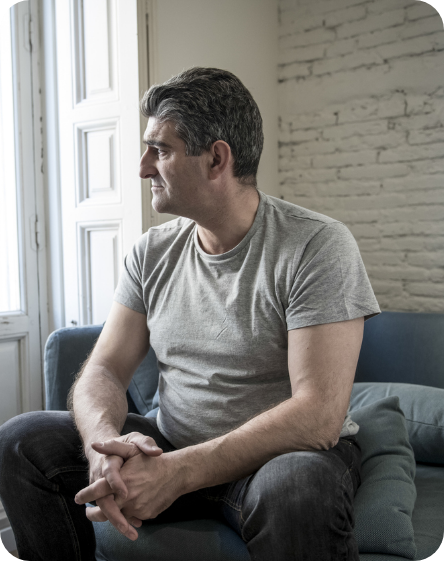Anxiety & Depression Treatment in Southfield, Backed by Science
Emotional exhaustion doesn't always look like sadness or panic—it can show up as irritability, mental fog, or feeling disconnected from the people around you. If you're looking for meaningful help for anxiety and depression, our team in Southfield is here to offer something different.
We combine advanced neurotherapy, QEEG brain mapping, and integrative counseling to create a strategy that fits the way your brain functions, not just the symptoms you're experiencing. Whether you've tried anxiety therapy before or are just beginning to seek support, we'll meet you with options rooted in neuroscience and a deep respect for your lived experience. Every step is grounded in collaboration, clarity, and a belief that sustainable change is possible.
A brighter future is possible—reach out to our team today to learn more.
How QEEG Brain Mapping Supports Anxiety & Depression Treatment
Struggling with anxiety or depression can feel confusing, especially when symptoms seem to come out of nowhere. QEEG brain mapping offers a clearer view of what's going on beneath the surface. This noninvasive technology tracks your brain's electrical activity, highlighting patterns linked to stress, low mood, or poor focus.
At our Southfield clinic, we use this data to guide neurotherapy for depression and anxiety, so each session targets the areas where your brain needs the most support. You'll receive a custom treatment plan grounded in objective insight, not guesswork.
For individuals seeking therapy after years of dealing with anxiety or depression symptoms, QEEG helps us build a path forward that's grounded in your unique brain function.
About Treatment for Anxiety & Depression in Southfield, MI
What makes neurofeedback a good fit for high-functioning individuals with anxiety or depression?
Many people in high-demand careers or caregiving roles appear outwardly successful but silently struggle with symptoms like chronic tension, irritability, emotional detachment, or exhaustion. Neurofeedback can be an ideal match for high-functioning individuals because it doesn't require talking through every emotion or revisiting past trauma.
Instead, it works by helping the brain shift out of fight-or-flight mode and into more stable, flexible patterns. At our Southfield office, we often work with clients who feel "stuck" despite appearing to cope well on the outside. Neurotherapy provides a quiet but powerful way to restore balance and resilience from within.
Can neurofeedback help if I've already tried therapy and medication?
Yes, neurofeedback is often helpful for individuals who haven't found full relief through traditional therapy for depression or anxiety.
At The Center for Integrative Psychology near Southfield, many of our clients come to us after trying multiple medications or rounds of talk therapy with limited success. Because neurotherapy works directly with brain activity, it offers a new pathway for healing, especially for those whose symptoms are linked to neurological dysregulation.
Neurotherapy doesn't have to replace therapy or medication, but it can add a brain-based dimension that many people find transformative when other options have plateaued. It's also a popular option for individuals who actively want to move away from prescriptions and discover how to treat anxiety without medication.
How is your approach to anxiety and depression different from other providers in Southfield?
We don't take a one-size-fits-all approach. Our Southfield team blends mental health therapy, QEEG brain mapping, and neurofeedback to create a treatment plan that reflects your unique brain patterns and emotional landscape. Instead of focusing only on symptom management, we help you understand the root causes of dysregulation so you can build skills, resilience, and self-awareness that last.
If you're exploring a more holistic approach to depression or anxiety treatment, neurotherapy at our Southfield clinic offers a method grounded in science and built around you.
Does neurofeedback help with physical symptoms of anxiety or depression?
Yes. Many people with anxiety and depression experience physical symptoms—tight muscles, chronic fatigue, headaches, digestive issues, or shallow breathing. Because neurofeedback helps regulate the nervous system, these symptoms often begin to ease as brainwave activity becomes more balanced.
At our office near Southfield, clients have reported reduced body tension, better sleep, and improved energy levels after consistent neurotherapy sessions. Emotional healing and physical relief often go hand in hand when the brain is supported in this way.


